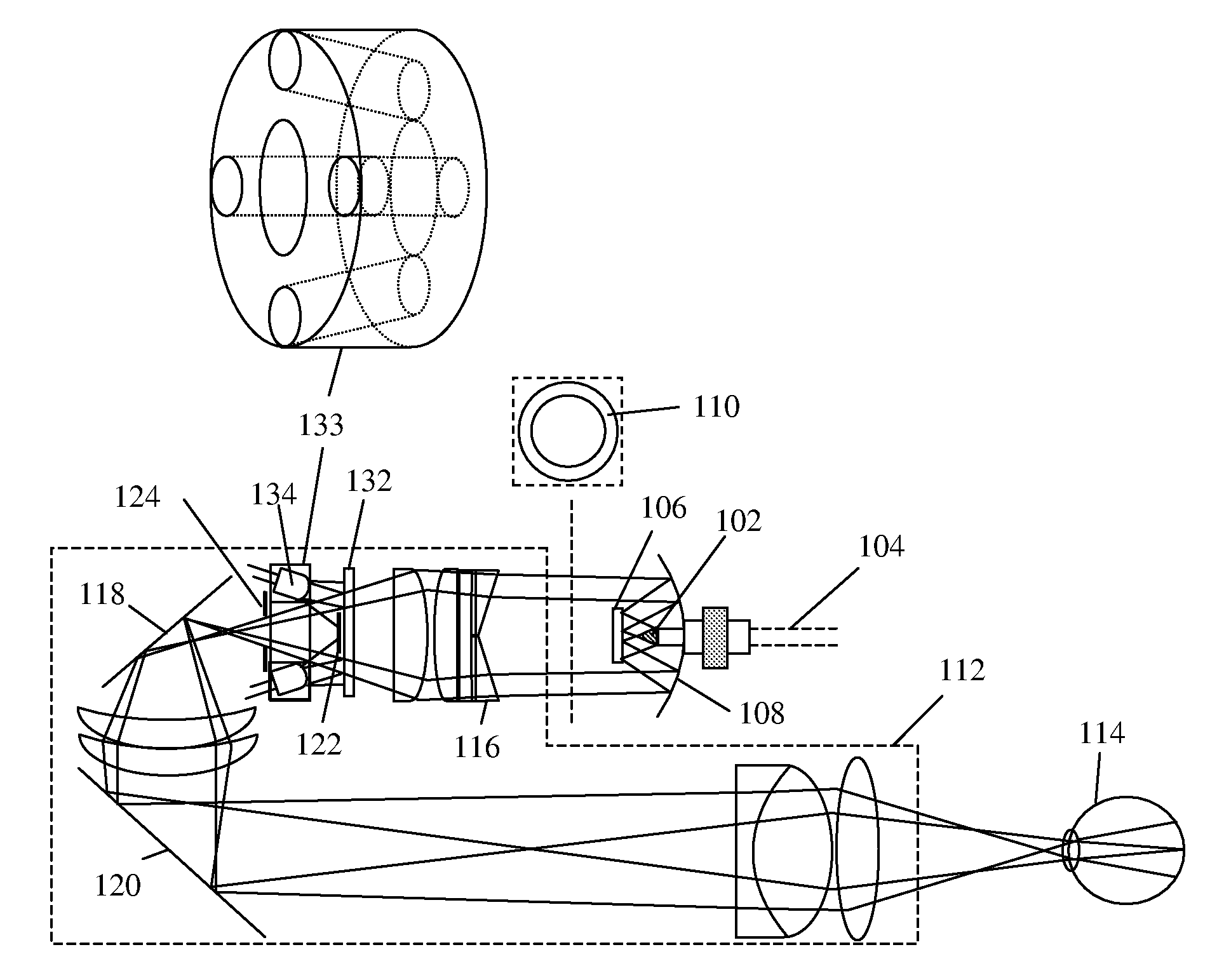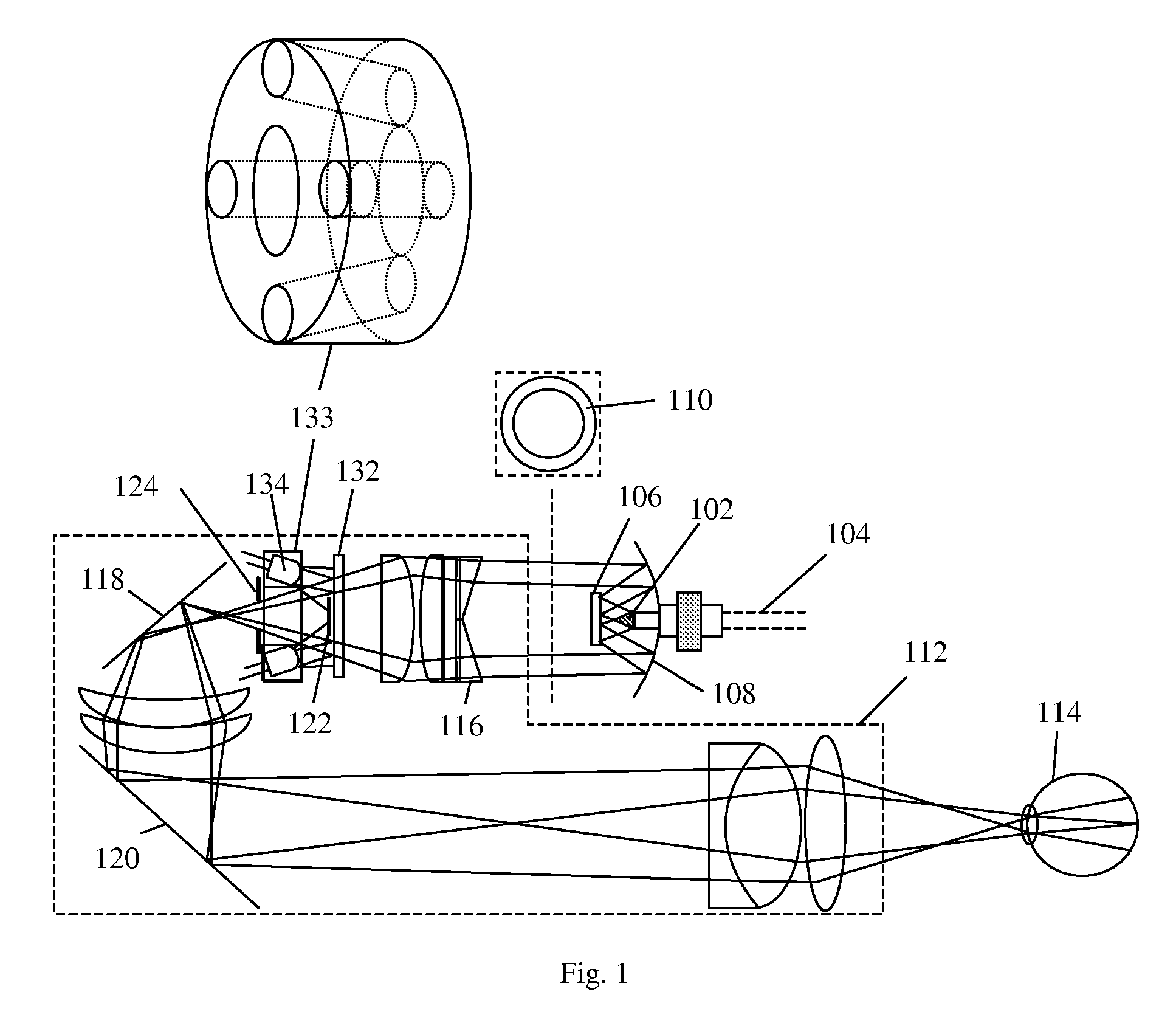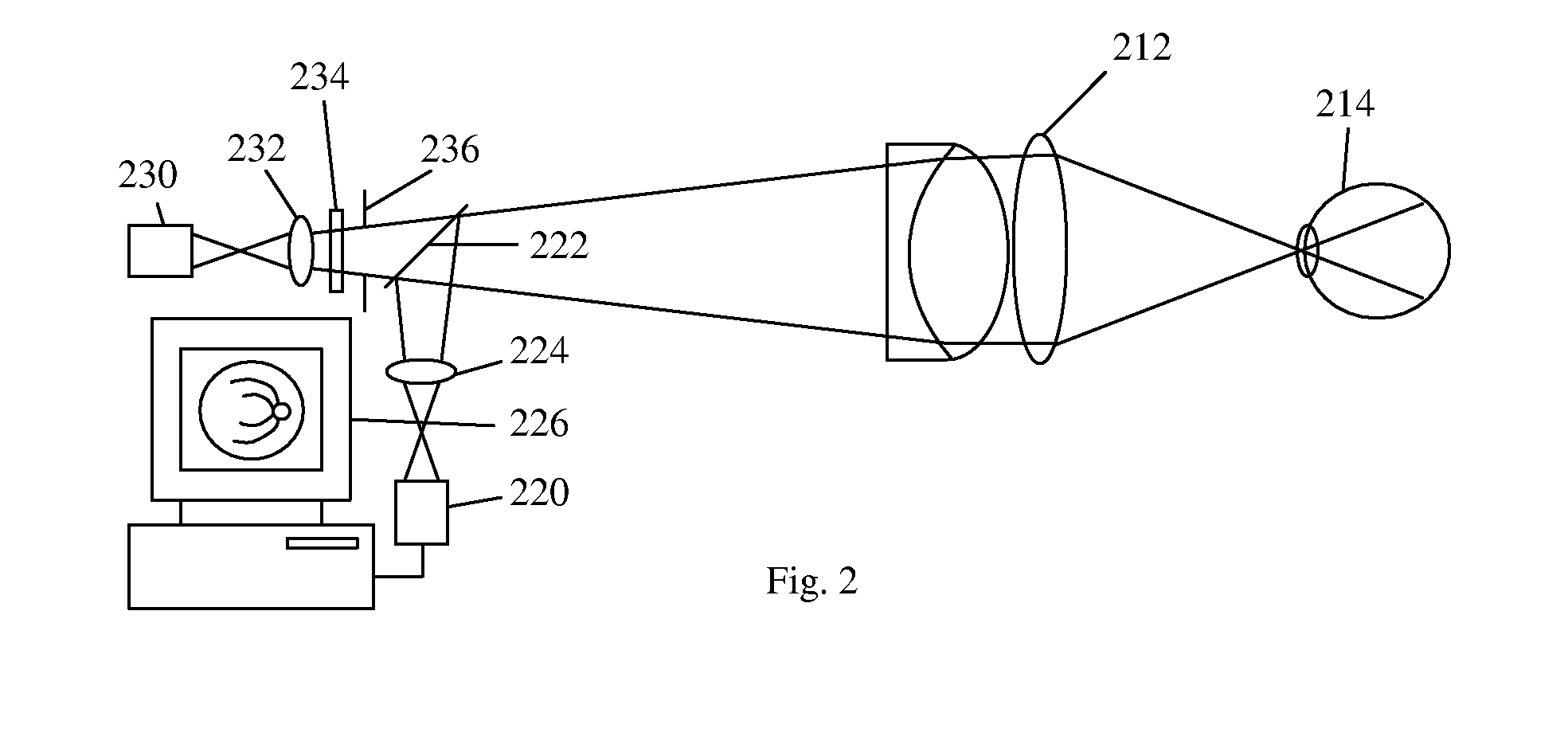Working distance and alignment sensor for a fundus camera
a technology of alignment sensor and fundus camera, which is applied in the field of fundus camera for retina imaging, can solve the problems of not always correct working distance determined by the approach, only working approach, and flash light,
- Summary
- Abstract
- Description
- Claims
- Application Information
AI Technical Summary
Benefits of technology
Problems solved by technology
Method used
Image
Examples
Embodiment Construction
Overview
[0020]Various embodiments of the invention will be described where one embodiment is an optical arrangement of a working distance sensor in a fundus camera (note that the word fundus and retina are used interchangeably), and the associated method, in which one or more near infrared light sources such as a number of LEDs (light emitting diodes) are arranged to project a number of near infrared illumination beams into the visible light illumination path of the fundus camera. The near infrared beams may or may not substantially overlap with the visible illumination beam.
[0021]Due to the fact that the iris will generally not constrict when illuminated by near infrared light, a live view of the retina under near infrared illumination can be captured by a near infrared image sensor and displayed on a monitor before a visible retina image is taken. This live near infrared retina image can serve two purposes. Firstly, it will enable the operator to have a live view of the retina und...
PUM
 Login to View More
Login to View More Abstract
Description
Claims
Application Information
 Login to View More
Login to View More - R&D
- Intellectual Property
- Life Sciences
- Materials
- Tech Scout
- Unparalleled Data Quality
- Higher Quality Content
- 60% Fewer Hallucinations
Browse by: Latest US Patents, China's latest patents, Technical Efficacy Thesaurus, Application Domain, Technology Topic, Popular Technical Reports.
© 2025 PatSnap. All rights reserved.Legal|Privacy policy|Modern Slavery Act Transparency Statement|Sitemap|About US| Contact US: help@patsnap.com



